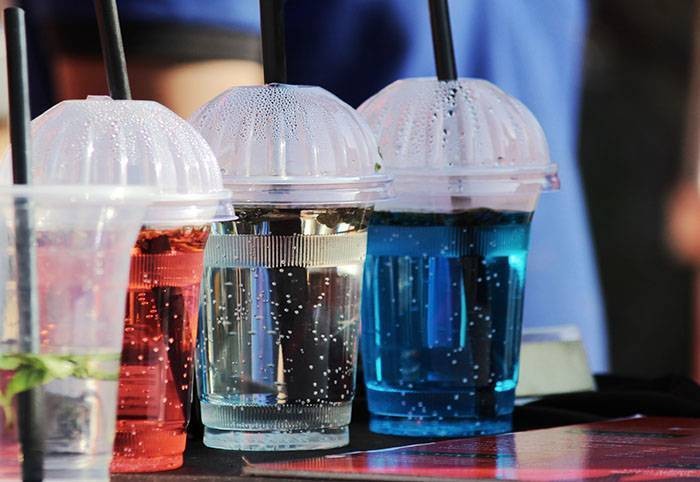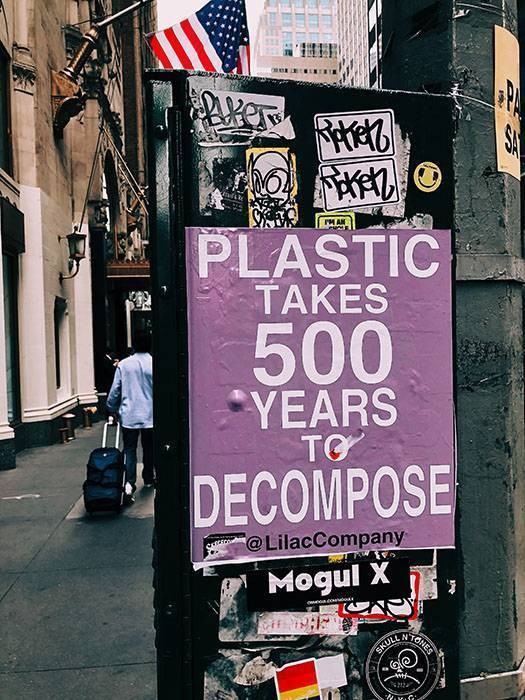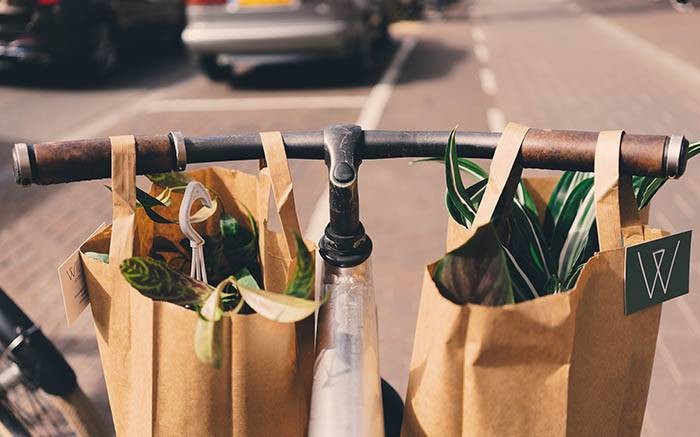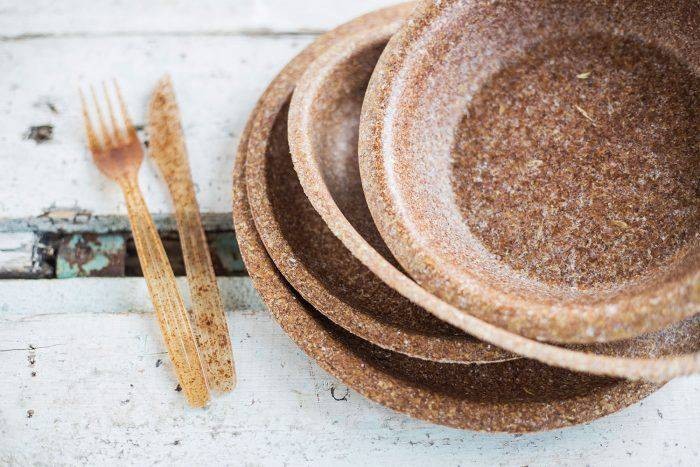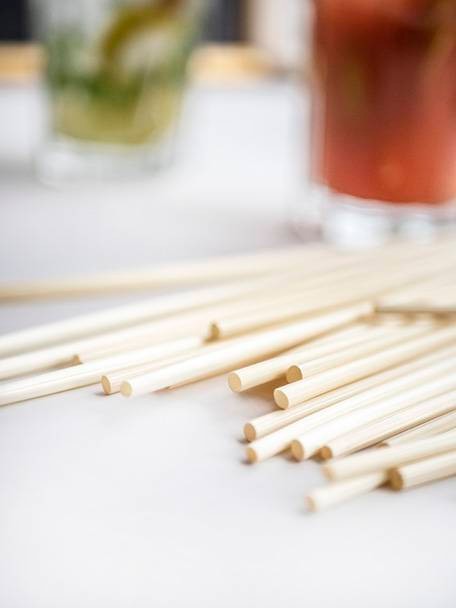The EU has finally sealed the deal on a long-simmering ban of a single-use plastics. The member countries have two years to implement the new regulations into their national law, but already today one thing is certain; it will bring changes in the way we produce, use and recycle food packaging.
It will require some adaptations in the food industry. Fast-food chains, fast-casual dining, food-trucks, catering services, and any other restaurants offering take-out services will be particularly affected by the new regulations.
The EU ban will cover most of the single-use cutlery and many of the takeaway packagings. It will also include plastic lids for the takeaway cups and to some extent plastic bottles.
EU’s ambition is to encourage a systemic change in the way we produce, use and recycle packaging. Hence we can expect further reforms that will introduce new schemes for recycling and producer responsibility.
In this article, we will explain and sum up the new regulations and look at how will they affect the food packaging industry.
Let’s start with explaining briefly, what the new regulations are, and when will they come into effect. The directive came into force in 2019, from then on the EU Member States have two years to transpose the legislation into their national law.
By 2021 in all of the member states the following single-use plastics will be banned:
- cutlery
- plates
- straws
- drink stirrers
- food containers made of expanded polystyrene or oxo-degradable plastic
- beverage containers made of expanded polystyrene or oxo-degradable plastic
- cups made of expanded polystyrene or oxo-degradable plastic
- plastic sticks for balloons
- cotton bud sticks
- all products made of oxo-degradable plastic
Furthermore, the Member States will have to introduce direct measures to reduce consumption of food containers and beverage cups made of plastic. We can expect the following;
- additional fees and responsibility scheme costs for the producers
- informing and discouraging the consumers from using plastic containers by using the specific marking and labelling of certain products.
- Extended Producer Responsibility schemes,
- producers and companies will be responsible for recycling and waste clean-up
The program is a response to the reports on the devastating state of the oceans and is a part of a shared global reaction to the environmental challenges of pollution and climate change. India and Canada are already preparing comparable laws, and a significant number of countries across the world have already implemented similar regulations into their legislature. A lot more is needed to address the issue adequately, and the new legislation is only a part of a broader European strategy for plastics in a circular economy. It means that further actions and regulations are on their way.
Sustainability and circular economy are not just beautiful words and beliefs. They are the framework for new rules and laws on a global scale.
In other words, within the next few years, you will be obliged by law, to conduct your business with a more sustainable and circular approach. As a business owner, already today, you should consider an alternative to plastic packaging and cutlery. Good news is that it is not going to be difficult. Change in regulations can often bring concerns over the transition period, but there is no reason for that because the market is ready for it. It is hardly a surprising reform, and a significant number of alternatives is already available on the market. Some of them have been there a long time before plastic. Paper, cotton, glass and steel are back in the game, and together with new materials, they offer us a wide selection of alternatives.
Paper and Cotton versus Plastic
Paper and cotton have their flaws like resource-intensive production; nonetheless they have a significant advantage over plastic. They are biodegradable and in most cases can be easily composted into soil. As a comparison, even the biodegradable plastic does not biodegrade fully, and it takes hundreds of years.
The paper production has already addressed some of the issues. It includes modifications in the harvesting and the production process. For example, paper from FSC certified sources meets the requirements of sustainability and circular economy. It is endorsed by all the major environmental organizations, including WWF, Greenpeace and The Woodland Trust.
FSC certification means that the factors like circular economy, plants, animals and local communities are taken into consideration
Why is it so important? Very often, if we don’t look at different aspects altogether, we tend to create a new problem while solving the other. Irresponsible deforestation leads to considerable damage to the local communities and the ecosystem, such as erosion of the ground, air pollution, respiratory infections and food shortage in the area.
Cotton has the benefit of being durable, but the production is resource-intensive and often includes the usage of dangerous chemicals. Still, a tote bag used for your shopping or your takeaway food is less harmful to the environment than the plastic one, as long as you remember to reuse multiple times.
All the single-use products have their challenges and environmental cost, hence the need for better recycling schemes.
Wheat Bran Tableware and Hay Straws
There are also new solutions like wheat bran or hay. Unlike cotton or paper, the production process isn’t resource-intensive and doesn’t involve chemicals.
Wheat bran is the new shining star of the innovative trends in the takeaway and catering services. It is hard to find a product more sustainable and environmentally friendly. They are biodegradable, the production itself is environmentally friendly, and they can be produced from a by-product of the grains used in mills. No chemicals are used to make the plates and bowls. Biotrem was the leading company to introduce the wheat bran based cutlery and tableware. The only ingredients in the company’s plates and bowls are wheat bran and water, which are fused using high temperatures and by applying high pressure.
Another interesting example is straws made from hay. Genius and simple at once. They have several advantages over steel and paper alternatives. They are cheaper than steel, don’t need cleaning and more durable than the paper alternative. Furthermore, they are natural and fully biodegradable.
Following the new trends and taking a stand on the topic of sustainability and the environment is vital for you and your consumers.
As a business owner, you shouldn’t underestimate the increasing environmental sustainability awareness and a new wave of consumers, who are willing to pay more for a product which is organic and environmentally friendly.
Being able to communicate that your packaging is environmentally friendly has growing value for your company. Phrases like organic, sustainable, environmentally friendly are compelling selling points.
At Fastpack, we have been at the forefront of this movement, because we see the potential of paper food packaging and wheat bran tableware. We have seen the effect of the food packaging on the company’s branding and customer’s dining experience. For years we have been an advocate for replacing plastic with paper. Paper boxes, bags and wrapping paper are not only more environmentally friendly than plastic but also serve a better aesthetic experience and have outstanding functionality. We have promoted and served as a distributor of wheat bran cutlery, tableware and cups, and recently we added hay straws, and we look forward to the new changes in the food industry.
